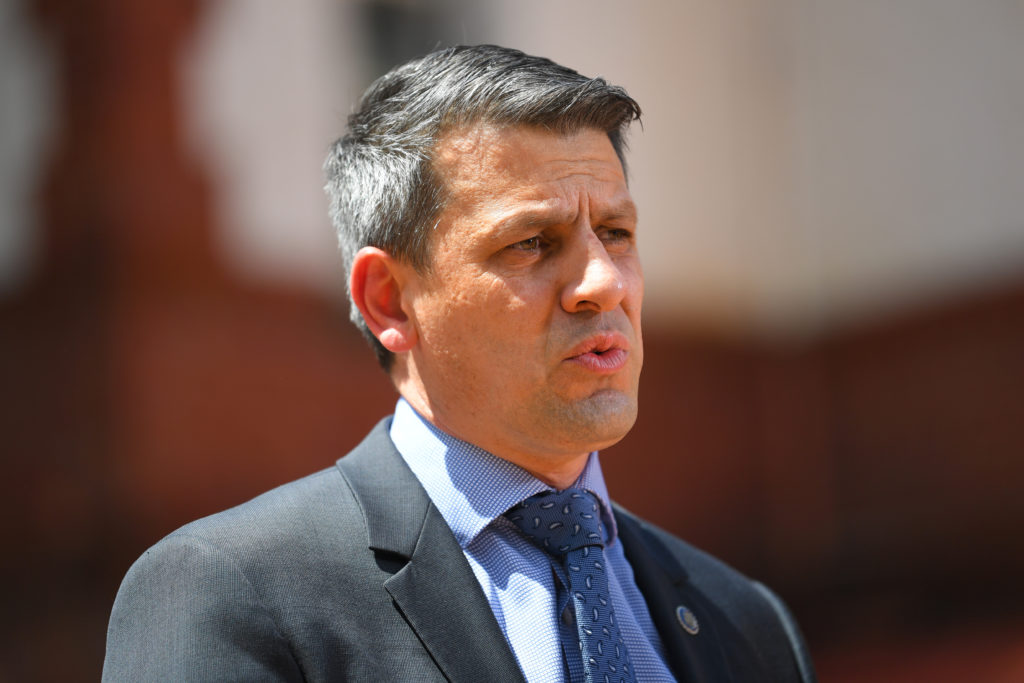It’s that phone call we all dread and loathe.
You’re knocking off after a busy day at work, getting set to organise things at home or heading out for a drink and your phone pings one more time.
It’s your boss, with a message. “Can you help us with one more thing before you go?”
These days, it seems we’re never not at work. Nearly everyone is walking around with a phone in their pocket or bag, which means we take work with us, wherever we go.
Just where is the boundary between being at work and being off deck? If mobile technology was meant to make life easier, no one has told employers and managers, who assume that because they can contact you, they’re entitled to do just that.
Workers are increasingly locked into eternal shifts – where work has no start or end. This has been exacerbated by the COVID-19 pandemic, as millions of workers have seen their homes become their workplace.
For workers in high-intensity and stressful jobs like policing, the need for a clean break from work time has never been more critical to workers’ physical and mental wellbeing.
Which makes the Right to Disconnect clause in the Police Association of Victoria’s (PAV) latest Enterprise Bargaining Agreement (EBA) an important breakthrough for workers wanting to take back control of their downtime.
Wayne Gatt is Secretary of the PAV. He told On the Job that his members were telling him that there was no boundary between work and home life, and something had to change.
“They were telling us with increasing regularity that it was not uncommon on their days off, that they were being contacted about trivial matters that were more about convenience for the employer and less about essential and necessary communication,” Mr Gatt said.

“Policing has always been a 24/7 business and always will be, but the increase in technology has led us to a situation where our people are more accessible than ever before. So we’ve been led to a point where people just pick up the phone and ring that person [who is off shift] rather than saying it can wait until tomorrow.”
“The Right to Disconnect” ensures that outside of serious emergencies, rostered-off staff have the right to be free from checking phone calls, emails and texts. The first legislation of its type was passed in France and is being pursued by unions worldwide in order to reclaim rest time for workers.
ACTU Secretary Sally McManus sees the move as vital for workers in this age of interconnectivity.
‘It is essential that working people be able to disconnect. This is especially important for people who perform psychologically stressful work. Without clear boundaries separating work and the rest of your life, working people can be both expected to work extra unpaid hours and be subject to a job that is at high risk of mental health problems,” Ms McManus told the ABC.
With around 17,000 members engaged in stressful, difficult work, Wayne Gatt sees the Right to Disconnect as essential to ensuring police can work at their optimum and enjoy a better quality of life whilst at home.
“They’re in a job that when they’re at work, there’s a degree of hypervigilance that sets in. In policing, you come to work every day, you look over your shoulder, you are constantly on guard. You have to be on your A-game because if you’re not, people die.
“In order to deal with the impact of having such as stressful job, you actually need to give people the opportunity to decompress and return to normal. What we’ve seen over time [with the introduction of new technologies] is their capacity to do that has been diminished more and more.”
The consequence in policing is increasing burn-out as workers find the constant demands of the job too onerous. This has a significant impact in a job where experience is vital to successful outcomes.
“You can’t replace an experienced officer with a police recruit and expect to have the same return on that investment. That is something you’d expect in any industry, that experience is important and it’s something that should be respected,” Mr Gatt said.
The COVID-19 pandemic has reshaped our working lives dramatically, and the consequences of a shift to a work from home model have brought new pressures to bear on workers. It’s a worrying shift according to Wayne Gatt.
“The jury’s out around the world about what a safe work environment looks like post-COVID, particularly in the context of working from home.
“This should be an increasing concern for employers who should say – it’s not enough for me to just assume you are not working yourself into the ground. I actually have to plan for that. In fact, I have a responsibility to make sure that happens.”
With the success of Victoria’s police force in establishing the right to disconnect, other unions are looking to do likewise.
It’s not too late to once again ensure that workers enjoy the downtime they’ve worked hard for.






SHARE:
Remember when knocking off work meant just that?